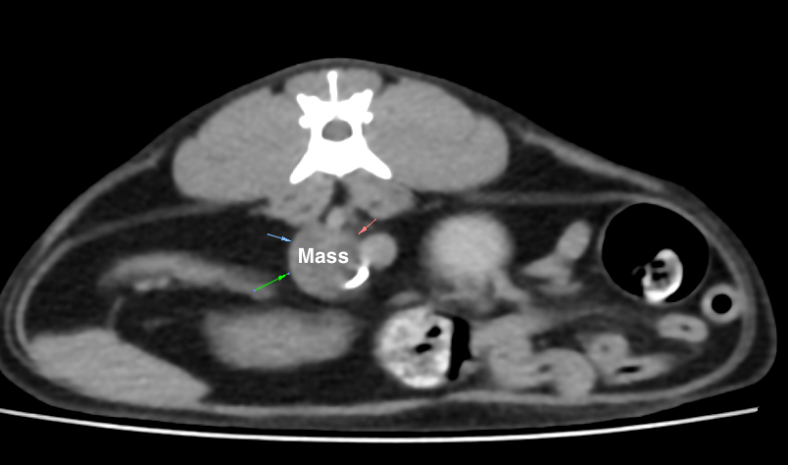Our Community
Darling Daisy!
Today we meet the beautiful Daisy and hear what was causing difficulties with her neck movement.

Daisy came to The Ralph as she was suddenly unable to lift her head. She was seen by our Emergency and Critical Care team for an initial assessment upon arrival. Blood tests demonstrated she had severe hypokalaemia, which is a dangerously low potassium level. She was immediately given intravenous potassium supplementation to boost her levels.
Following Daisy’s initial stabilisation, further tests were carried out to establish the cause of the low blood potassium. An abdominal ultrasound highlighted a mass (tumour) in her left adrenal gland (located just in front of her kidney). The adrenal glands are vitally important in producing hormones such as aldosterone (which maintains the body’s water, sodium and potassium balance) as well as steroid, sex (oestrogen, progesterone) and stress (adrenaline) hormones. In Daisy’s case, the mass in her left adrenal gland was producing too much aldosterone which was the cause of the low blood potassium. This condition is called hyperaldosteronism or Conn’s Syndrome. It is this low blood potassium which causes muscle weakness, and the reason why Daisy was unable to lift her head.
We performed a CT scan, which demonstrated that there was no invasion of the local blood vessels or spread of the tumour to any other of Daisy’s organs – this was good news. The decision was made to surgical remove the tumour to prevent any future harm. Daisy was anaesthetised and an exploratory celiotomy was performed by our Soft Tissue Surgery team. The abnormal left adrenal gland was removed and sent to the laboratory for further analysis.

The CT scan showing the location of the mass.
Daisy recovered so well from surgery she was discharged within a couple of days to continue her recovery at home. At the time of her discharge, her potassium levels were within the normal range, so no further supplementation was required. Everyone here at The Ralph is really pleased to hear Daisy has made a full recovery and even more excited with the fact that the laboratory results confirmed the mass to be a benign adrenocortical adenoma. This means Daisy’s long term prognosis is excellent.
Thank you for taking the time to read about Daisy’s story. If you would like to find out more about our Soft Tissue Surgery Service or our Emergency and Critical Care Service, please click on the links.
Stay tuned for more tales from Team Ralph!
Take care,
Team Ralph
